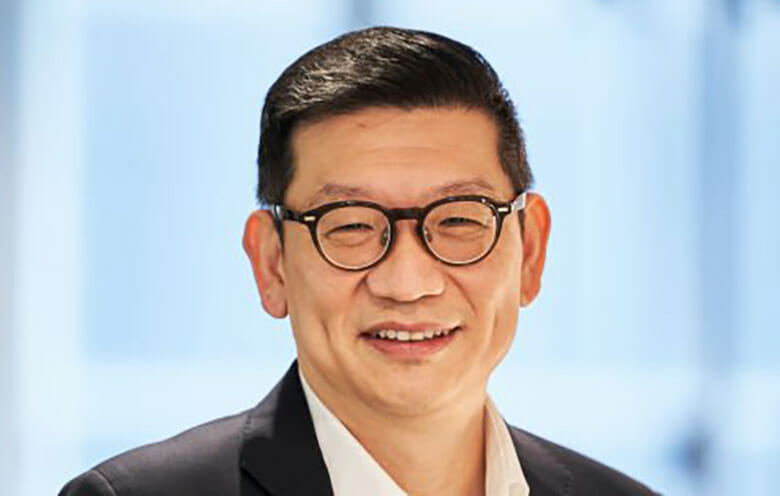
GIC chief executive Lim Chow Kiat (Getty Images)
In today’s roundup of regional news headlines, Singaporean giant GIC seeks a buyer for its 50 percent stake in an Australian mall, and signs of weakness in China’s property market continue to mount as developers pull back on land buys. Also making the list, Goldman sees more risk of default in mainland property bonds and Japan land prices are on the rise.
GIC Puts Half-Share in A$500M Perth Mall on Block
Australia’s large shopping centres are again changing hands after their values were reset by the pandemic and rising interest rates, with Singapore’s GIC putting a stake in a Perth mall on the block.
The sovereign wealth fund is looking to sell its half-interest in the A$500 million ($332.6 million) Westfield Whitford City as liquidity returns to the top end of the shopping centre market. Read more>>
China Developers Buy Less Land in H1, June Home Sales Drop 29%
Chinese developers spent 10 percent less on land in the first half compared with a year ago as sales stayed flat, private researcher CRIES said, reinforcing the still-low confidence in the real estate sector and weakness across the broader economy.
In June alone, property sales cooled at a faster pace than in May, dropping 29.4 percent from a year ago. On a seasonally adjusted basis, the drop would be 19 percent, CRIES said. Read more>>
Goldman Raises 2023 Default Forecast for China Junk Property Bonds
Goldman Sachs now expects a higher default rate for Chinese high-yield property dollar bonds, as missed payments and policy uncertainty continue to weigh on the country’s real estate sector.
The investment bank’s projection has returned to 28 percent, a level the firm first released in December before cutting it to 19 percent in February in the wake of policy-easing measures and a nascent rebound in new home sales. The year-to-date default figure has reached 15.6 percent, according to Goldman Sachs, with Central China Real Estate among the most recent delinquencies. Read more>>
China Aoyuan Seeks Creditor Approval for Offshore Debt Plan
Embattled developer China Aoyuan Group has reached an agreement with a third of the holders of its offshore debt for a restructuring plan that would allow it to obtain capital to sustain its daily operations, the company said Monday in a filing with the Hong Kong stock exchange.
The Guangzhou-based builder has $3.45 billion of debt in 12 dollar bonds, which formed part of its total of RMB 42.8 billion ($5.9 billion) in foreign-currency debt at the end of 2022, according to the filing. Read more>>
China Vanke Says Local Property Market Worse Than Expected
China’s second-largest developer by sales said the nation’s housing market is currently “worse than expected”, joining a chorus of investors and analysts who have become bearish on the country’s real estate sector.
China Vanke chairman Yu Liang backtracked his neutral assessment from March, changing to the view that the property industry is “indeed seeing pressure in the short term”, according to a company transcript from Vanke’s shareholder meeting last Friday. Read more>>
China’s Central Bank Appoints New Top Communist Party Official
Chinese leaders appointed Pan Gongsheng as the top Communist Party official at the People’s Bank of China, the central bank said Saturday, a move that people familiar with the matter say will lead to his eventual rise to governor.
Pan, currently the central-bank deputy governor, will likely be installed as the bank’s governor following his promotion to the top Communist Party post, the people familiar with the matter said. Read more>>
Higher Land Prices Add to Signs of Japan’s Post-Pandemic Recovery
The average land price in Japan rose 1.5 percent from a year earlier for the second consecutive year of increase, government data showed Monday, adding to signs of the economy recovering from the coronavirus pandemic.
A recovery in prices for commercial areas led the overall trend, according to the data as of 1 January, after the government eased COVID-19 measures, including immigration controls, stimulating hopes that businesses will be revived with the help of demand from foreign tourists. Read more>>
Leverage of Japanese Real Estate Firms on the Rise From Asset Growth
Japanese real estate companies’ net leverage, measured by net debt divided by total property assets, rose slightly for their respective fiscal years.
The total real estate assets of the property majors rose by 6 percent year-on-year, while net debt grew faster, by 9 percent, on robust activity and development pipelines. Read more>>
Tune in again soon for more real estate news and be sure to follow @Mingtiandi on Twitter, or bookmark Mingtiandi’s LinkedIn page for headlines as they happen.
Leave a Reply